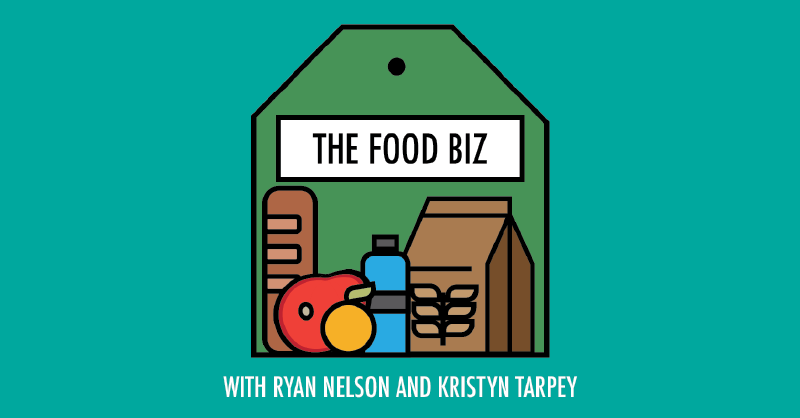Commodity Blog
Apr 19 2022
The Food Biz Ep 25 Blog Recap: We've Never Seen an Organics Market Like This

Ryan Corey is back on The Food Biz this week to share his thoughts on the organic market with hosts Ryan Nelson and Kristyn Tarpey. Ryan is the Vice President of Economics for Mercaris and has experience in the organic, biofuel, dairy, and livestock markets. He joins the podcast again to share his thoughts on Mercaris’ Monthly Market Update Report, current risk factors to consider, and upcoming changes in organic markets.
Ryan Nelson and Kristyn Tarpey kick off the discussion by asking Ryan Corey what stood out to him the most in the most recent report. Ryan Corey begins by highlighting foreign markets and the risk in organic space. The focus shifts to US markets and risks domestically. Ryan Corey believes that an acreage shift could occur this year based on current markets as planting decisions are being made. There could also be an expansion of organic soybean production following the elimination of organic soy meal imports from India and the increase of prices for the commodity.
Based on seed sales, a 20% increase in organic soybeans is projected for the 2022 growing season, roughly the same growth as the prior year. Despite this, the soybean on soybean planting decisions could impact yield negatively from an agronomic standpoint. Even with the estimated increase in production by 1.5 million bushels, it would not be enough to close the gap in supply from the loss of imports.
This story is consistent with the fears surrounding organic corn production this year. Ryan states that the concerns are competition between corn and soybean acres and yield decreases. With corn production comes the added requirements regarding fertility and nutrient management. Given the current anhydrous prices and competition in the organic manure space, there are growers contemplating lower or no applications which is sure to reflect in yields come fall.
Ryan Nelson asks if it is possible to lose organic acreage to conventional crops to which Ryan Corey explains that is always possible. While some ask “how high do premiums have to be for people to convert”, he states this is not necessarily the best way to think about it as there are many more factors to consider. In his last appearance, Ryan Corey explains how organic production is a different farm management approach which he explains again in this episode.
Kristyn then asks if Ryan has previously seen this degree of market volatility in the organic space. Ryan Corey states that it has historically been stable but due to import and export issues and domestic production, concern arises. A number of issues arising in a short period of time such as current logistic issues, increased fuel prices, access to Indian supply, avian influenza and the ongoing war in Ukraine has created “unprecedented levels of risk” in the organic space. The act of attempting to project prices and even supply is difficult and unparalleled.
To add one more piece to the puzzle every producer is trying to figure out, fertilizer prices have the ability to shape short and long term decisions. With higher production costs and reduced application rates in organic production, there is opportunity for this current climate to shape how and what producers plant in the future. Crops that require high rates of nitrogen, such as corn, now have additional risk attached to the decision to plant, especially in this coming season.
For anyone interested in reading the Mercaris Market Update, the report is available on Mercaris’ website. Organic producers are also eligible for a free farmer plan, which includes organic bi-weekly reports on organic commodity prices and market information.
Make sure to listen to the entire episode on Spotify or in the Apple Podcasts App! While you’re there, don’t forget to subscribe. Also, feel free to reach out to us by email at news@barchart.com with any discussion topics, questions, comments, or overall feedback; Ryan and Kristyn would love to hear from you!
Barchart Updates
